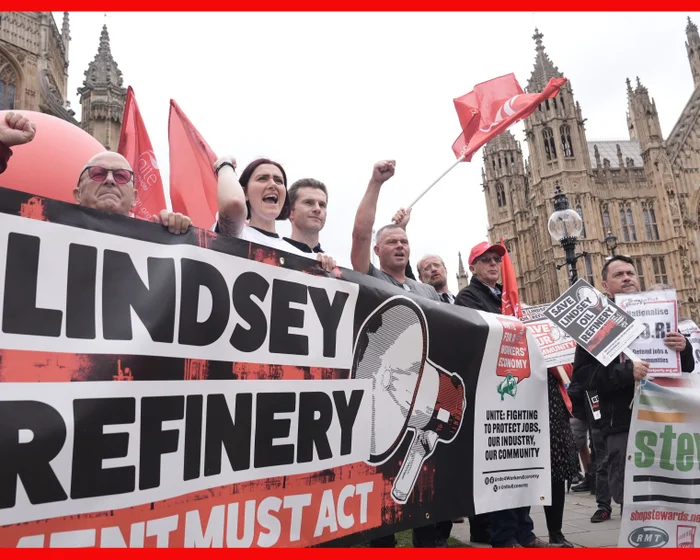trending
neon
Cirque du Soleil offers summer ticket deals
dining out
Celebs ditch the Strip for iconic Henderson restaurant
july 
trending
neon
Cirque du Soleil offers summer ticket deals
dining out
Celebs ditch the Strip for iconic Henderson restaurant
july 

As the U.S. government ramps up spending, the national deficit continues to rise. This article explores the economic implications of government spending on the U.S. deficit and what it means for 2025




As the U.S. prepares for the economic challenges of 2025, government spending continues to play a crucial role in shaping the nation’s fiscal landscape. The federal deficit has grown substantially in recent years, with increased spending on infrastructure, social programs, defense, and pandemic relief measures. While government spending is necessary to stimulate the economy, it also raises concerns about the long-term sustainability of the deficit and its potential consequences for future generations.
The national deficit refers to the annual shortfall between the federal government’s revenues (mainly from taxes) and its expenditures. When the government spends more than it collects, it borrows to cover the difference, thus increasing the national debt. As of 2025, the U.S. deficit is expected to remain high, with projections indicating that the national debt will continue to rise as a percentage of GDP.
The primary drivers of the U.S. deficit include:
Increased Government Spending
In response to economic crises such as the COVID-19 pandemic and global supply chain disruptions, the U.S. government has increased spending on various sectors. This includes substantial investments in infrastructure, healthcare, and social security programs, as well as defense spending. While these investments are critical for economic recovery and growth, they contribute to the growing deficit.
Tax Policy and Revenue Shortfalls
Despite efforts to increase tax revenues, the U.S. government continues to face challenges in raising sufficient funds to cover its expenditures. Lower tax rates on businesses and individuals, coupled with tax breaks for certain sectors, have limited revenue growth, exacerbating the deficit problem.
Interest on National Debt
As the national debt grows, so does the cost of servicing that debt. Interest payments on the U.S. debt are expected to rise significantly in the coming years, further increasing the deficit. In 2025, the government will allocate a larger portion of its budget to servicing the debt, leaving less room for discretionary spending on other critical areas such as education, healthcare, and infrastructure.
The ongoing increase in government spending and the expanding deficit raises several important economic questions. The implications of this trend are far-reaching and could have both short-term and long-term effects on the U.S. economy.
Government spending, particularly in times of economic recovery, can lead to inflationary pressures. When the government injects money into the economy through stimulus packages or infrastructure projects, demand for goods and services increases. If the supply of these goods and services doesn’t keep up with demand, prices rise, leading to inflation. This can erode purchasing power and increase the cost of living for consumers. As of 2025, inflation remains a key concern as the U.S. government continues its spending initiatives.
While inflation can be a sign of a growing economy, excessive inflation can have detrimental effects. The Federal Reserve’s response to rising inflation typically involves raising interest rates to cool down the economy. Higher interest rates, in turn, can increase borrowing costs for businesses and consumers, slowing economic activity and potentially reducing investment.
To finance the growing deficit, the U.S. government must borrow money by issuing Treasury bonds. While this is a standard practice, it raises concerns about the long-term sustainability of the national debt. In 2025, the government is expected to borrow more than $1 trillion to cover the deficit, further increasing the national debt.
As the national debt grows, the government must allocate more of its budget to pay interest on this debt. This could lead to a situation where a large portion of government spending is tied up in debt servicing, leaving less room for investment in other areas such as education, infrastructure, and research and development.
Additionally, the more the U.S. borrows, the more it depends on foreign investors to finance its debt. If global confidence in U.S. debt weakens, it could lead to higher borrowing costs and a reduction in the country’s ability to borrow at favorable rates.
The growing deficit and rising debt levels could also have an indirect impact on business investment. As the government borrows more, interest rates tend to rise, which can increase the cost of borrowing for businesses. Higher borrowing costs can discourage businesses from investing in expansion or new projects, ultimately slowing down economic growth.
Additionally, businesses may be concerned about the long-term fiscal health of the U.S. economy. If the government continues to run large deficits and accumulate debt, there may be fears that future tax hikes or spending cuts will be implemented to address the debt issue. This uncertainty can further dampen business investment and economic confidence.
As the national debt continues to rise, the U.S. government may be forced to implement tax increases to reduce the deficit. In 2025, policymakers are already considering various options to increase revenues, including raising corporate taxes, expanding the tax base, and eliminating certain tax breaks. These measures, however, are likely to face political challenges and could result in increased burdens on businesses and individuals.
While higher taxes could help reduce the deficit in the long term, they could also slow economic growth in the short term. Higher corporate taxes, for example, could reduce business profits and investment, while higher income taxes could reduce consumer spending. Balancing the need for fiscal responsibility with the goal of promoting economic growth will be a significant challenge for U.S. policymakers in 2025.
The effects of government spending and the growing deficit are not felt equally across society. While some sectors, such as healthcare, social security, and defense, benefit from increased government spending, others may see fewer resources allocated to their needs. This can exacerbate social and economic inequality, particularly if certain groups or regions are disproportionately affected by austerity measures or cuts to government programs in the future.
Additionally, the rising cost of servicing the national debt could divert funds from programs that directly benefit low- and middle-income households, further exacerbating inequality. Ensuring that government spending is targeted effectively and efficiently will be essential for addressing these disparities.
As the U.S. government ramps up spending, the national deficit continues to rise. This article explores the economic implications of government spending on the U.S. deficit and what it means for 2025
the latest

Job Cuts at Lincolnshire Refinery, UK Growth Revised Upward
Around 125 jobs will be lost at the Lincolnshire (Lindsey) oil refinery after its parent company entered insolvency, even as revised GDP data shows the UK economy grew faster under Labour than previously estimated

Reeves Proposes Youth Mobility Deal for UK and EU Under-30s
UK Chancellor Rachel Reeves has proposed a new youth mobility scheme that would allow young Europeans aged ~18-30 to live and work in the UK under a post-Brexit arrangement, while emphasising limits on duration and net migration.

Biden Approves Ukraine Use of Long-Range Missiles Into Russia
President Biden has authorized Ukraine to use long-range missiles to target locations inside Russia, marking a significant escalation in the ongoing conflict.

Labour Byelection Win Marks SNP Decline, Says Anas Sarwar
Scottish Labour leader Anas Sarwar said the party’s byelection victory shows the SNP’s dominance is fading, signaling a major shift in Scottish politics.

UAE Employees: Are Salaries Deductible During Annual Leave?
A common question in the UAE workplace is whether employers can deduct salaries while employees are on annual leave. Experts explain labor law provisions and best practices.

Sharjah Self-Defense Club Claims No-Gi Title at UAE Jiu-Jitsu
Sharjah Self-Defense Club emerged victorious in the No-Gi category at the UAE Jiu-Jitsu Championship, showcasing skill, discipline, and teamwork.

UAE Schools Announce One-Month Winter Break
UAE schools will have a one-month winter break from December 8, 2025, to January 4, 2026, giving students and staff an extended holiday period.

Sharjah Extradites Uzbek and Nepalese Nationals for Fraud
Sharjah authorities have extradited two foreign nationals—one Uzbek and one Nepalese—wanted under Interpol Red Notices to face fraud charges.

US Envoy Confident of Breakthrough on Gaza Crisis
A senior US envoy expressed optimism about achieving a breakthrough in Gaza peace talks, signaling renewed international efforts to end the humanitarian crisis.